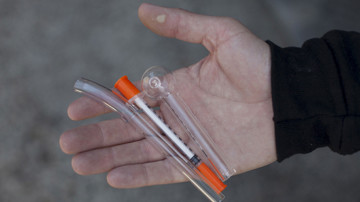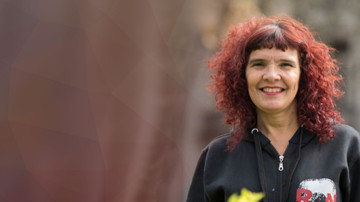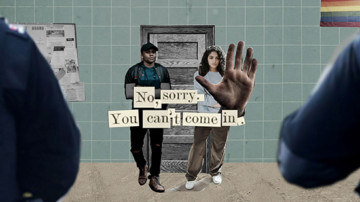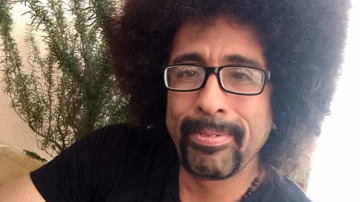
Tomás Ponisio is a founding member of PAF! (Proyecto de Atención en Fiestas – Project for Care in Parties), a harm reduction project promoted by Intercambios Asociación Civil to provide care at electronic parties. Tomás answered our questions about the project’s importance and relation to drug policies in Argentina.
How did you get into the world of harm reduction?
I am 36 years old and have lived in Argentina’s capital since I was 18. As a teenager, I started using alcohol and tobacco and, as an adult, I started experimenting with cannabis, LSD, ecstasy, ketamine and cocaine; basically, a bit of everything. Out of curiosity and because I was interested in these experiences.
I always tried to find information about the effects associated with the use of these substances. But 18 years ago, this information was not available and, when it was available, it was not very accessible.
In this process of searching, I found a Spanish-speaking cannabis cultivation forum on the internet, Cannabis Café, which had a section where other drugs were also discussed. I became a participant and in these spaces, I asked questions, contributed, and shared information.
Towards the end of the 2000s, different factors related to prohibition and punitive drug policies generated a worldwide shortage of MDMA. As was the case elsewhere, Buenos Aires was filled with adulterated pills. For my circle of friends this situation was worrying because we didn’t know what we were consuming.
Out of this vital need for information and knowledge, and with the aim of supporting each other, we created an online forum: Argenpills.org. This forum allowed us to share experiences of different substances and their presentations. The forum is still active and has about 40,000 registered users. The idea is to enable people to make decisions under the most favourable conditions.
Years later, in 2016, the Time Warp tragedy happened. This was a techno party in Buenos Aires where five young people died, and others had to be hospitalised.
The media approached the situation with the sensationalism and misinformation to which we were accustomed.
But something changed, as many people looking for answers turned to the Argenpills.org forum. It was an avalanche of users seeking information, sharing messages, wanting to take better care of themselves in the absence of adequate health-based responses.
Among those messages, there was an email from colleagues from Intercambios A.C. explaining how they were setting up a group to respond to these challenges, seeking to ensure that people looking to have fun were better supported and safer in these spaces.
It was then that I decided to leave the virtual world and join this group of reflection and action, from which PAF emerged.
What does PAF! do?
The Project is a civil society initiative that began operating in 2017 in nightclubs, discos, and parties. The intervention in these spaces has consisted of offering materials and supplies that allow people to take better care of themselves and other people as well, whether they are friends, partners, peers, etc.
In addition to information about different types of drugs, about their effects and how to navigate the experiences, we share water, fruit, condoms, and all this for free.
We went from being at the entrances of these party spaces to having kiosks inside. And this evolution reflects the helpfulness and caring spirit that motivates the people who volunteer with PAF!.
Our aim is to create safe and trusted spaces. Let people know that we are there not to judge them, ask them questions or seek to punish them. On the contrary, we are there to listen, to solve doubts, to be caring in case of difficult experiences, and to reduce the chances of adverse situations happening.
Sometimes people spontaneously approach us to serve as a ‘bridge’ (or perhaps more like a ‘shield’) with the health or security services in these spaces. Because even if they don’t know how those services will respond, they know that we are there as their peers, to be of service. I think this also reflects the drug policy situation in our country; where people sometimes don’t dare to ask for help or interact with services for fear of punishment.
What are you particularly proud of in relation to this experience?
I am a user of both legal and illegal psychoactive substances. And I know that these substances have different functions in people’s lives. And my own experience is to some extent a response to the lack of quality and honest information on these issues. I was born to share with others, in a spirit of care and wellbeing.
And noticing how the PAF in its work with networks, in party spaces, in the street, reaches people and how people respond in an absolutely positive way, is the driving force behind this work.
The Project continues to exist because we connect with the needs of people who use drugs (and people close to them) to generate exchanges anchored in harm reduction and care.
In your opinion, what are Argentina’s pending tasks with people who use drugs?
The main thing is to modify the current drug law we have, which criminalises possession for personal consumption. We have to decriminalise and put an end to punitive responses to drug users.
And with this as a basis, we need to regulate, educate, inform, provide support, and help to those who need it.
And we must also seek a better articulation between the work of the state (including health centres and security forces), the work of civil society, and the needs of our communities.
It is time to take this issue seriously. Which is the opposite of ‘everyone do as they please’. It is about all of us taking responsibility and ownership of this situation.
Photos: Proyecto de Atención en Fiestas – PAF!
Tomás’ story was compiled with support from Intercambios A.C. and the Argentine Network for the Rights and Assistance of People who Use Drugs (R.A.D.A.U.D.). This story has been translated from Spanish and edited for clarity.
More stories from Argentina
More stories about Harm Reduction





